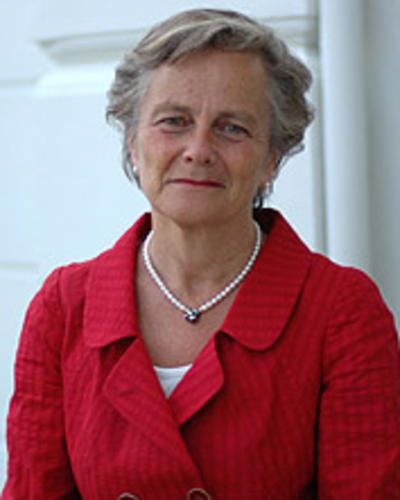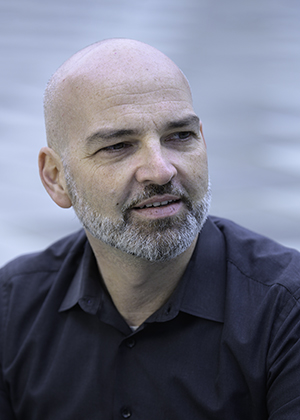Taal & Klimaat

Stuurgroep van het Denkersprogramma Taal en Klimaat
Documenten
Evenementen
Op initiatief van de Klasse Menswetenschappen en onder leiding van Kristin Davidse (KU Leuven) en Anne-Marie Vandenbergen (UGent) wordt in 2021 een Denkerscyclus georganiseerd rond ‘De taal van debat en communicatie over klimaatverandering’.
Het debat rond klimaatverandering leeft nog steeds zowel internationaal als in Vlaanderen en zowel bij beleidsmakers als bij het brede publiek. Terwijl de wetenschappelijke voorspellingen – sneller dan verwacht – bewaarheid worden, raakt het debat internationaal sterker gepolariseerd en nemen scepsis en ontkenning – niet zozeer op wetenschappelijke gronden maar vanuit ideologie en politieke of economische belangen – echter allerminst af.
Geconfronteerd met deze situatie wil deze Denkerscyclus de taal van communicatie en debat over klimaatverandering onderzoeken. Taal dient niet enkel voor het eenduidig communiceren van feiten en acties maar ook voor het overbrengen van meer connotatieve betekenissen. Taalkundige analyse laat immers toe het perspectief te verbreden van feitelijke (des)informatie naar de rol van ideologie, identiteit en wereldbeeld in communicatie over klimaatverandering. Door taalkundige analyse van zowel klimaatbewuste teksten als van het sceptische en ontkennende discours kan een bewustwording worden gecreëerd van de manier waarop taal overtuigt en manipuleert.
Samen met een interdisciplinair samengestelde stuurgroep en twee internationaal gereputeerde Denkers zal men trachten adviezen te formuleren voor een inclusieve beleidscommunicatie voor Vlaanderen.
Kjersti Flottum is professor Franse Taalkunde aan de Universiteit van Bergen, Noorwegen, en leidt een onderzoeksgroep rond klimaatcommunicatie. Zij richt zich vooral op beleidsteksten en hoe die geïnterpreteerd worden door het publiek.
Mike Schäfer is professor Wetenschapscommunicatie aan de Universiteit van Zürich, Zwitserland, en directeur van het Center for Higher Education and Science Studies (CHESS). Zijn interesses situeren zich binnen de publieke perceptie van wetenschap en technologie, online en social media communicatie, conspiracy theories en wetenschappelijk gerelateerd populisme.
Activiteiten
- 21-22 september 2021 - workshop: samenbrengen van reeds uitgevoerd onderzoek en onderzoek dat op het getouw staat stimuleren.
- 19 november 2021 - publiek slotevent: conclusies en voorstelling van het Denkersrapport.
- februari 2022: publicatie van het eindrapport

Kjersti Fløttum is professor of French linguistics, Department of foreign languages, University of Bergen. She was vice-rector for international relations 2005-2009 and has since 2013 been a member of the university board. She has had numerous local, national and international commissions of trust. Her research interests cover text- and genre theory, narrative structures, semantics, pragmatics, linguistic polyphony, and discourse analysis.
The major part of her empirical research is oriented towards enunciation, polyphonic (multivoiced), lexico-semantic and narrative analysis of academic, political and climate change discourse. She has led several large projects (KIAP, EURLING, LINGCLIM) and has often collaborated in international and cross-disciplinary contexts. She is since 2012 head of the cross-disciplinary LINGCLIM research group and head of the CLIMLIFE project 2020-2023. Fløttum has published substantially in international journals and is co-author of Academic Voices (2006), and editor of Speaking to Europe (2013) and The role of language in the climate change debate (2017).
Fløttum is member of the Norwegian Academy of Science and Letters and of Academia Europaea.

Mike S. Schäfer holds the chair for science communication at the Department of Communications and Media Research (IKMZ) of the University of Zurich. He is the Director of the University’s Center for Higher Education and Science Studies (CHESS), President of the AGORA Commission for Science Communication of the Swiss National Science Foundation (SNSF) and Speaker of the “Science Communication in Times of Digital Transformation” expert group of the Swiss Academy of the Arts and Sciences (A+).
Prof. Schäfer’s work focuses on mediated science communication (in traditional legacy media as well as in social media and on digital platforms), on public perceptions of science, and on communication theory. He has written widely on these issues, co-editing handbooks like the “Oxford Encyclopedia of Climate Change Communication” as well as publishing empirical analyses in leading journals of the field.
Mike S. Schäfer was a visiting researcher at Harvard University, the University of Pennsylvania, the University of Oxford and Monash University. He is an elected member a member of acatech – the German National Academy of Science and Engineering and tweets under @mss7676.

